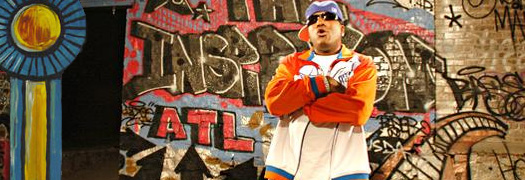
Features | Awards
The Beanie Sigel Award for Mainstream Rap Album that Only I (and maybe Colin) Truly Understand
By Clayton Purdom | 19 December 2008
 Young Jeezy
Young Jeezy
The Recession
(Def Jam; 2008)
Jeezy’s ascent to hip-hop royalty never made sense to me. Tip had the Swiss-Army flow, Hova the godlike charisma, Kanye the fertile production, Clipse the archly witty trap-hop narrative, Lil Wayne Lil Wayne. Young Jeezy, the Croaking Goon, He of the Non-Name, was best noted critically for “I Luv It,” which though good on its own terms was a carbon copy of T.I.’s transplendent “What You Know.” How, then, did Jeezy’s third album, when I stared at my list and forced honesty from my fingertips, land as my fifth favorite of 2008?
How the fuck couldn’t it have? “Put On” is Jeezy’s proper anthem, stadium-sized, writ in pyrotechnics; it earns via synth stabs and pummeling pride the staunch shivers down our spines it sends. Two tracks later, over squirming synths and martial brass, Jeezy nails in hook alone the best Obama track of the year: “My President is black / My Lambo’s blue / And I’ll be goddamned if my rims ain’t too,” the absurdity of which, when looked at in print, seems to pinpoint part of The Recession’s greatness. Although, to be accurate, there are no real “parts” of this record. It is perhaps more than anything else an accomplishment of form. It is whole; it is sturdy and immoveable; it is all, as its critics will tell you, the same. But via a strange alchemic uniformity of production and flow The Recession inverts Jeezy’s facelessness into a fits-all mask. He is desperately we.
Or, put another way, this is the least annoying political album of all time. Titling this album as he did necessitated a certain amount of reactionary groans among we haughty online folk. The notion of one of the mainstream’s least incisive emcees tackling what might be the great occurrence of the next decade doesn’t entice. But Jeezy doesn’t tackle these issues; instead, never overstepping his abilities, he addresses them. Finally, right now, his groan seems appropriate. He offers no answers, makes no promises other than the cold comfort that we’ll survive. He bleats these sentiments between a cavernous stretch of twittering synths on the high end and window-rattling bass on the low end, barely surviving himself. He fumbles around in this murk with the same idiot terror the rest of us do, whether or not we listen to All Things Considered. He bitches about gas prices with the same randomly placed anger we do.
And he does this over a din: synthesized horns, synthesized drums, synthesized strings, synthesized choirs, synthesized other Young Jeezies. This music is to music what his raps are to rap, and within this perfectly contained universe other music and other rap need not really exist. When a chord change coincides with a drum drop on “What They Want,” Jeezy sounds like he just invented the chord change. When in the center of the album’s runtime a pair of tracks bounce along on buoyant vintage samples, Jeezy sounds like he just invented the sample. Jeezy’s triumph over these beats becomes ours via the almost childlike sincerity of his flow, although there’s nothing innocent or adolescent about the content. This is not the greatness of New York, Houston, or even Atlanta, but it may just be the heir to the fuck-critic populism of Tupac Shakur. The rap nerds still trying to pick it apart are putting their soft fingers to work on a boulder. Of course they’re disappointed. At its very core is the same rocky stuff as its exterior. What, after all, is a boulder but the biggest type of rock? And what is The Recession but the biggest type of rap?





